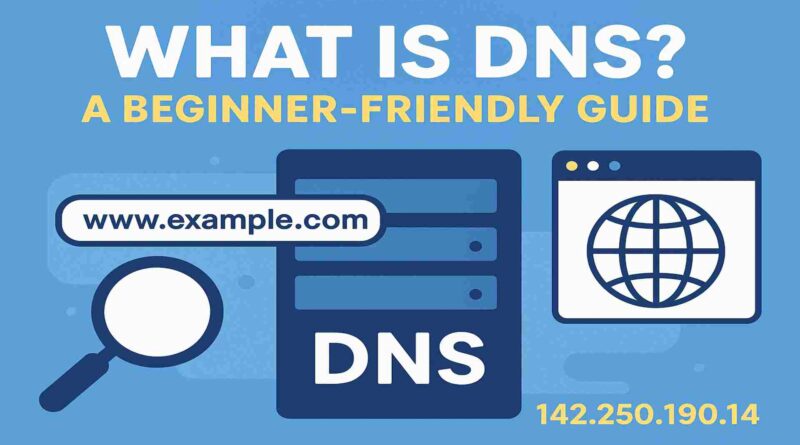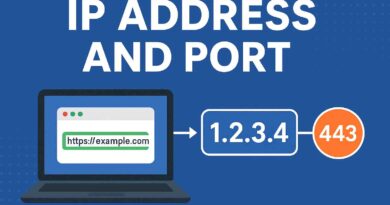What is DNS? A Beginner-Friendly Guide to How DNS Works
When you type a website name like google.com or facebook.com into your browser, how does your computer know where to go? That’s where DNS comes in.
Think of DNS as the phonebook of the internet.
Domain Names vs. IP Addresses
Every device on the internet (like websites, servers, or even your computer) has a unique number called an IP address.
- Example of an IPv4 address:
142.250.190.14 - Example of an IPv6 address:
2404:6800:4009:823::200e
Computers love numbers. But humans don’t!
It’s hard to remember 142.250.190.14, right? Much easier to just type google.com.
This is where DNS helps us.
What DNS Does
DNS (Domain Name System) is like a translator.
- You type a domain name (like
google.com). - DNS finds the IP address of that website.
- Your browser then connects to the website using that IP address.
In short:
Domain Name → DNS → IP Address → Website loads
An Everyday Example
Imagine you want to call your friend, Sarah.
- You don’t dial Sarah’s name, you dial her phone number.
- But you don’t remember everyone’s number. You look it up in your phone’s contact list.
DNS works like that contact list — it matches names (like google.com) with numbers (IP addresses).
How DNS Works (Step by Step)
- You type
google.comin your browser. - Your computer asks a DNS server for the IP address.
- The DNS server checks its records.
- If it knows, it replies with the IP address.
- If not, it asks other DNS servers on the internet.
- Once the IP is found, your browser connects to the right website.
- If a DNS server cannot find the IP address for a domain name, an Error is returned. Your browser receives a response stating that the domain does not exist.
- The next time you visit, your computer may remember (cache) the result, so it loads faster.
Why DNS is Important
- Without DNS, we would have to memorize long strings of numbers for every website.
- DNS makes the internet user-friendly.
Common DNS Terms
- DNS Server: The computer that stores domain name → IP mappings.
- DNS Resolver: The service (often provided by your ISP or Google DNS like
8.8.8.8) that looks up domain names for you. - Caching: Storing DNS results temporarily so the same website opens faster next time.
Popular DNS Servers You Might Use
- Google DNS:
8.8.8.8and8.8.4.4 - Cloudflare DNS:
1.1.1.1 - OpenDNS:
208.67.222.222
These are free and often faster than your Internet Provider’s DNS.
Final Thoughts
DNS is one of those invisible systems that makes the internet simple to use. You type a name, it finds the right number, and your website appears.
Without DNS, the web would be a confusing mess of numbers. Thanks to DNS, you just need to remember names.



